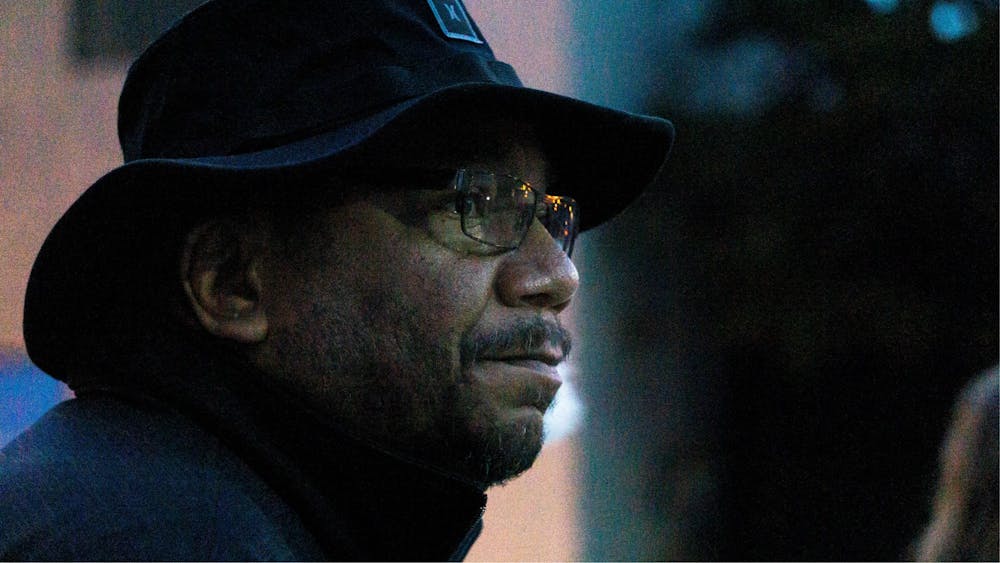Timeline of Poor People’s Campaign:
Jan. 8, 1964: President Lyndon B. Johnson announces his “war on poverty” in the State of the Union address.
Aug. 31, 1967: Martin Luther King, Jr. names “the three evils of society:” racism, poverty and war.
November 1967: King plans a “Poor People’s March” for 40 days in May and June in Washington, D.C.
April 4, 1968: King is shot and killed in Memphis, Tennessee.
June 19, 1968: The first “Moral March on Washington '' is inspired by Dr. King, under the leadership of Ralph Abernathy and the Southern Christain Leadership Conference.
April 29, 2013: “Moral Mondays” gatherings begin in North Carolina. Gatherings were led by Rev. William Barber II, president of the North Carolina NAACP.
June 23, 2018: The Poor People’s Campaign congregates at the National Mall for the 50th anniversary of the first “Moral March on Washington” under the leadership of Barber.
Jan. 6, 2020: The first Muncie Moral Mondays takes place in front of City Hall.
June 20, 2020: The prospective date for this year’s “Moral March on Washington” to support the Poor People’s Campaign.
Source: poorpeoplescampaign.org
“The candlelight helps make the environment more peaceful and relaxing, so people are more open to sharing their opinions,” said senior political science major Dominic Bordenaro. “It helps with the ambiance.”
On the first Monday of every month, a group of Muncie citizens gather on the steps of City Hall before city council meetings to discuss concerning issues.
Muncie Moral Mondays were inspired by a national “Moral Mondays” movement that began in North Carolina in 2013. The movement supported the Poor People’s Campaign which was inspired by Martin Luther King, Jr.'s claim of three evils in the world: racism, poverty and war. The first “Moral March on Washington” took place June 19, 1968, to protest these three evils.
Bordenaro and Muncie citizen and activist Jason Donati, among others, wanted to unite the Muncie community through Muncie Moral Mondays.
“We don’t need more meetings. We need to see tangible progress,” Donati said. “Our goal is to establish a fusion coalition to lift the voices of people who are often unheard and build a broad fusion coalition of people from all backgrounds … an intergenerational, multigender, multiracial group of people who want to come together and fight issues facing the Muncie community today.”
Bordenaro said there were more Muncie community members than Ball State students at the Jan. 6 gathering, which was held in candlelight.
While Bordenaro, who is the president of Ball State Democrats, said Muncie Moral Mondays’ anti-war economy and anti-poverty philosophies align closer with Democratic Party ideals, he acknowledged all opinions are welcome in their gatherings.
“As long as no one is being offensive, we just let people speak their minds to how they’re feeling and thinking,” Bordenaro said. “The whole idea behind Moral Mondays is encouraging people to be open.”
Bordenaro said the idea for Muncie Moral Mondays was discussed after the 2019 municipal election, which he thought “had a tenseness surrounding it.”
“Muncie is still very segregated. It’s a very segregated city,” he said. “We’re just trying to build bridges and bring the community together so we can talk about issues in a more civil way.”
Encouraging open communication between Muncie community members is one of the main goals of Muncie Moral Mondays, Bordenaro said.
At the Feb. 3 event, which focused on institutional racism, personal experience with racism and the recent classroom incident at Ball State, many community members took hold of the opportunity to share their opinions including Jonathan C Mitchell, pastor of the Kirby Avenue Church of God.
“If you’ve ever been in Southern Alabama at 9:30 in the morning as a large black man and get pulled over by police officers, let me tell you something, lots of things go through your head but you’re in survival mode,” Mitchell said.
Another attendee at the event was Muncie City Councilman Jeff Robinson, who reflected on the incident at Ball State.
“When incidents like that happen, it’s important to learn from those incidents,” Robinson said. “It’s a teachable moment, and what these people are doing here is to bring awareness to it. Hopefully through awareness we can start to get rid of it.”
Donati, a former Muncie Community Schools board member and co-founder of Reconciliation Achieved through Community Engagement (RACE) Muncie, said gathering before city council meetings is meant to encourage political participation. He said current and future Moral Mondays events encourage students to register to vote.
Alongside educating students, Donati said Muncie Moral Mondays have built connections with other local organizations, including the NAACP, which also believes in eradicating the three evils. He said he hopes Muncie Moral Mondays can gain interest from a diverse representation of the Muncie community moving forward.
“A broad coalition has to include people from all backgrounds and groups of thought,” he said. “It has to be bipartisan. Everyone is welcome, but what is not welcome is hate speech — personally attacking people for their views, their characteristics or whatever. We are here to talk about ideas, policies and plans of action but not to personally attack people.”
Donati also said if there is enough interest, Muncie Moral Mondays may take a bus to Washington D.C. in June 2020 to participate in this year’s Poor People’s Campaign, “Moral March on Washington.”
Contact Grace McCormick with comments at grmccormick@bsu.edu or on Twitter @graceMc564.





